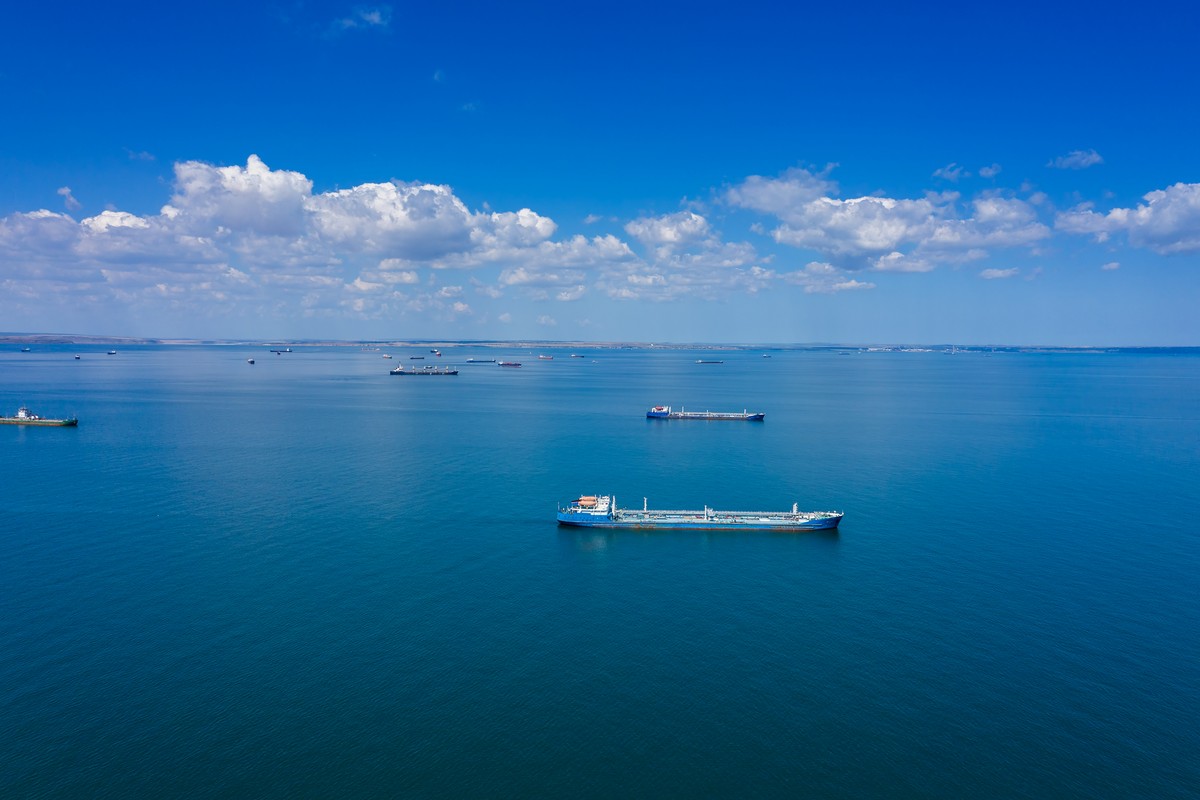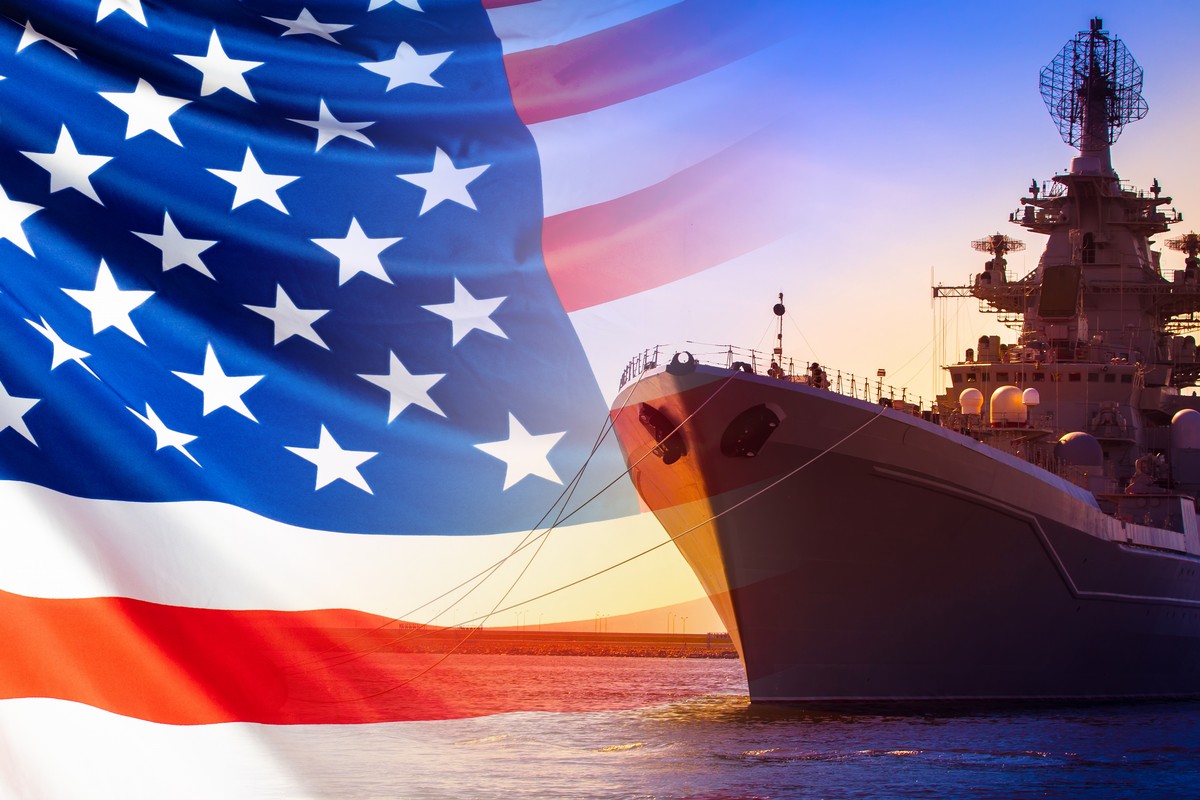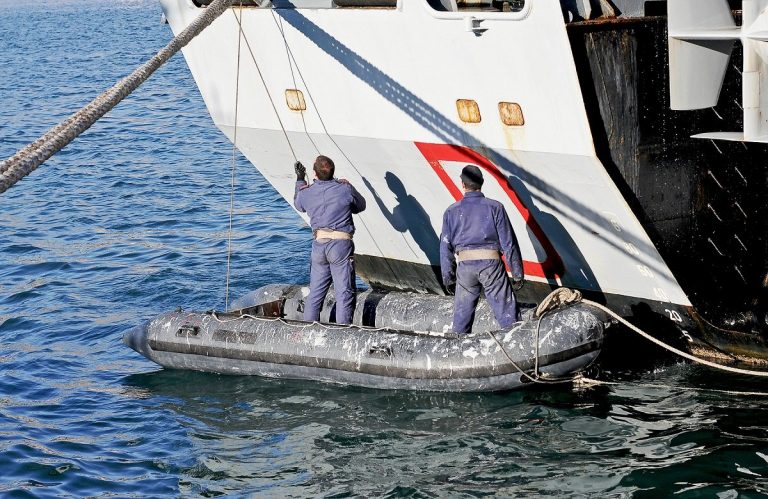The United States Navy is a powerful maritime force, with active vessels on duty at all times. The U.S. Navy also maintains ships on standby, in case of sudden need, but they cannot undertake all sensitive operations at sea, move all cargo, and crew their ready reserve vessels instantaneously.
Under the Jones Act or Merchant Marine Act of 1920, and related legislation including the Maritime Security Program or MSP, commerce between U.S. ports and all government cargo must be carried on U.S.-flagged ships. These ships are often referred to as the Jones Act Fleet, and they represent critical support services to our military.
The Economic Benefits of the Jones Act of 1920
Hundreds of thousands of Americans are employed in the maritime industry, in shipbuilding, repair, moving cargo, dredging, fishing, and energy exploration.1 The Jones Act provides protection for these workers and for the maritime industry itself.
The shipbuilding industry in the United States depends on the high standards for Jones Act vessels and the limits it places on foreign materials used in their construction. These requirements ensure the U.S. Navy and the country’s commercial fleet are not dependent on foreign countries for a reliable supply of high-quality ships.
Further, the Jones Act in the form of maintenance and cure protects seamen and women who crew these vessels, including compensation for injuries and lost wages for those sailors injured at sea. Cases are filed and heard in State or Federal Maritime Courts, usually with representation from a qualified Jones Act attorney.
The Strategic Military Benefits of the Jones Act
The Jones Act offers many strategic benefits to the U.S. Navy and calls out specific concerns that are solved by its requirements, including:
- The ability to call upon the Jones Act Fleet for sealift, which is the transportation or rapid deployment of U.S. military cargo, vehicles, personnel, and supplies.
- Maintaining the availability of trained crew members who are U.S. citizens or permanent residents to operate our “ready reserve” military vessels should they need to be activated suddenly.
- Preventing access to critical infrastructure, including ports, shipyards, and inland waterways by undocumented individuals or foreign nationals.
- Maintaining ports and navigable waterways through the use of the U.S.-flagged vessels for dredging, salvage, and towing, in the interest of national security.
- Protecting vital energy sources and the secure transport of critical fuel supplies.
- Maintaining a close partnership between the military and commercial fleet of U.S.-flagged vessels that can coordinate a response in times of natural disaster, national emergency, or military conflict.
Why Was the Jones Act of 1920 Enacted?
Before World War I, the U.S. fleet was steadily declining. Because cargo could be moved more cheaply on foreign-flagged vessels, that operated under less stringent requirements, much of our commerce took place in the hands of foreign ship owners and crew. When the war erupted, the U.S. navy was severely challenged to build, repair, and crew enough vessels to move critical supplies.2

Senator Wesley Jones of Washington sponsored the Jones Act as part of the Merchant Marine act of 1920, stating that it was needed to build and maintain the American Merchant Marine. He estimated that hundreds of millions had been lost as the result of the lack of adequate vessels and that a U.S.-flagged fleet crewed by American citizens was essential to national defense and commercial growth.
The Jones Act also provided protections for the U.S. shipbuilding industry, maintenance of ports and waterways, and the seamen who crewed American vessels. It created clear standards for fair compensation and a path for maintenance and cure attorneys and their clients to file suit under the law.
These protections had the desired effect and, by the time of WWII, the Jones Act Fleet was able to provide essential support to the war effort with less disruption and greater security than before. In 2018, there were almost 20,000 U.S.-flagged ships in operation.2
Current and Historic Controversy About the Jones Act
Over the years, there have been many challenges to and discussions about the Jones Act. Restricting domestic cargo transport between ports to nationally flagged vessels is a commonplace practice around the world, referred to as cabotage. However, critics of the act cite these concerns about its impacts:

- Higher operating, maintenance, and tax costs of U.S.-flagged vessels, along with stricter requirements that raise the cost of cargo shipping within the fleet.
- Concerns that the legislation is “protectionist” and limits free global trade.
- Highlighted examples of cases where locations impacted by natural disasters were believed to have been delayed in receiving aid by the requirements of the Act, most recently in Puerto Rico.
How Did the Jones Act Affect Puerto Rico?
Any vessel can enter the ports of Puerto Rico, and many deliver goods there daily from across the world’s oceans. However, under the Jones Act, and like all other U.S. ports, transported goods from one U.S. port to another must be carried by a U.S.-flagged vessel. Following Hurricane Maria in 2017, critics alleged that high prices and delays occurred in delivering aid to the people of Puerto Rico because of the regulations.
The U.S. commercial fleet did deploy additional vessels to Puerto Rico in response to Hurricane Maria, as well as relief trucks to aid in the distribution of the goods from the ports to the people inland.3 However, there were many challenges faced by the relief effort due to severe infrastructure damage across the island. It is unclear whether waiving the Jones Act in response would have led to a different result.
When Is the Jones Act Waived?
The U.S. government can waive the Jones Act shipping requirements when needed to allow foreign-flagged ships to transport U.S. cargo or passengers when necessary. This has happened a few times in recent years, including:
- Superstorm Sandy
- Hurricane Irma
- Hurricane Harvey
In the case of Hurricane Harvey, for example, the storm put the Texas Gulf oil supply system at risk. As a nationwide hub for petroleum distribution, it was essential that energy resources still travel from the gulf to the east coast of the United States without delay. The U.S.-flagged fleet was challenged to deliver emergency supplies and maintain fuel transport. The president issued a temporary waiver allowing foreign vessels to perform this service during the crisis.3
Supporting a Vital American Industry
The U.S. Navy continues to speak out in support of the Jones Act and the “citizen mariners” who provide essential economic and military support and security through their efforts.4 Not only does the Jones Act influence our military readiness and maritime industries, but it protects the rights of individual workers at sea to fair compensation for injuries or death.
Not all nations allow seamen to file suit against ship owners for negligence or receive a jury trial in cases of injury or wrongful death. In fact, many nations do not offer basic protections for crewmembers or any avenues for fair compensation. Lower standards for seaworthy ship-building and lack of worker protection, of course, lower shipping costs for foreign-flagged ships.
Supporting our Navy forces, the maritime industry, and the rights of injured workers is a valid and compelling reason to support the continuation of the Jones Act. When legal questions arise over the protections provided to seamen and women, a maritime injury lawyer can provide answers. If you have specific legal questions about the protections the Jones Act can provide for you or a family member, contact our team at Maintenance and Cure.
Sources:







